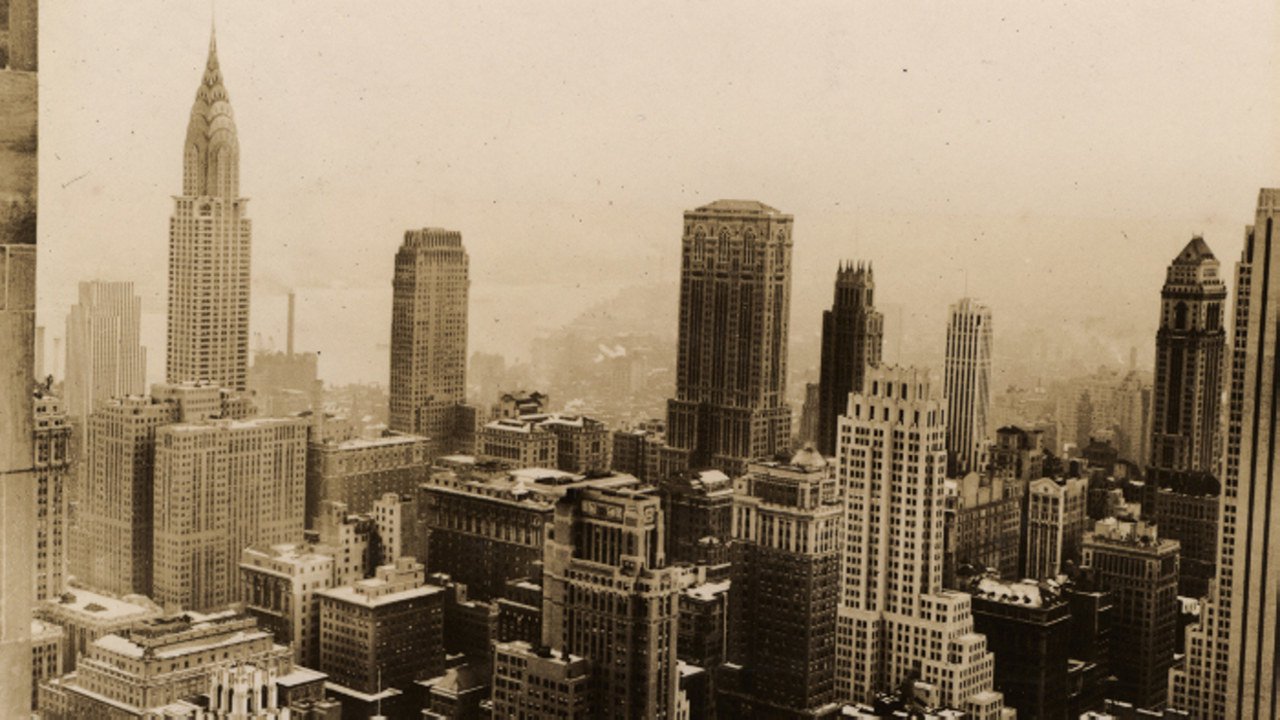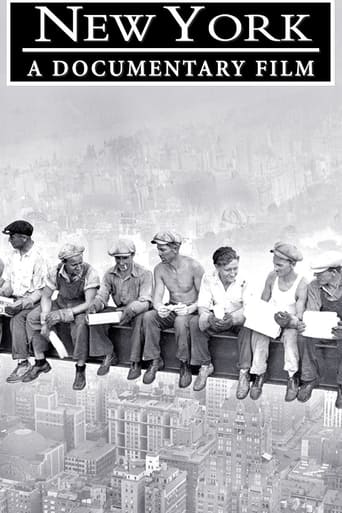

I like New York. I think it is a fascinating city, one of the earliest skyscraper cities of the West, one of the most cosmopolitan and dynamic places, and I don't really care about the slow pace of the documentary, but really, to tolerate the sheer number of ludicrous statements in every chapter is too much for me. Whatever the subject, be it the amount of immigrants, the speed of construction, even the metro system, everything is in superlative. Hearing those 'historians' speaking about New York one might think there has never been urban history outside of it. It is always the best, the most, the densest, unheard of, unparalleled and etc. I mean, there are many valid points to make, as New York was a kind of first vertical metropolis of the West but the constant gratuitous exaggeration of everything annoyed the hell out of me. In episode 4 I hear one of the historians saying that those immigrants from Russia where (I am paraphrasing) nothing has changed much from the medieval times suddenly found themselves in the most modern city on Earth. Really? I mean, Russia wasn't the most advanced state in the end of the XIXth century, but it was still one of the biggest empires and Saint-Petersburg was one of the most beautiful cities in Europe. Or when they say that the density of population of East Harlem was the biggest ever seen in the history of humanity. Wow, why not in the history of the universe? Why be so modest? These constant exaggerations really spoils what is otherwise an interesting deep insight into the urban history of the Western immigrant culture.
... View MoreThere is much I like about this documentary film. The early history of New York as a Dutch trading post, its role in the War of Independence, and the importance of the Erie Canal are especially interesting because they are unfamiliar. The use of contemporary writings throughout immerse you in the period. The film is exhaustively illustrated with maps, paintings, and drawings for the early period, and with photos and film footage as technology--and the City--advances.The lazy pace of the film irked me. A transcript would reveal that the film's content could easily be compressed. The languor of the narrative is the antithesis of the City's bustle. Much is repeated by a parade of historians recounting in turn each episode of New York's past. Many of the contemporary writings used in the film do not originate from the protagonists in New York's history, but merely from clerics or journalists.Certainly, the film is worth seeing. I can't wait til my return to New York this fall to revisit the storied sites described in the film. I have no doubt the filmmakers left much interview footage on the cutting room floor. But their efforts would have been better rewarded with even more trimming of duplicated narration, glacially slow photo pans, and extended transitions.7 of 10
... View MoreWhile Ric Burns' documentary has been lauded for its comprehensive overview of NYC's history, it contains a number of unfortunate historical errors. Most of these are minor (saying, for instance, that Henry Hudson arrived in New York harbor in 1610 when it happened in 1609), but when they pile up, sentence upon sentence, episode after episode, it makes one wonder who fact-checked this series. More importantly, it makes the entire production suspect. If some of the facts are definitely wrong, how many others are wrong, too?
... View MoreAfter watching this documentary on New York I felt numb & amazed at the same time. The captivating stills, the archival footage & precise narration go together to make a perfect blend.A must see film for any person who has a passion for modern history.
... View More